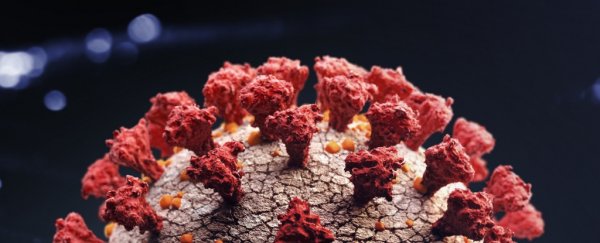As the world grows desperate for a COVID-19 cure, some companies are trying to profit off our fear and eagerness to resume normal life.
Unsubstantiated and unlicensed stem cell treatments for coronavirus are popping up all over the place, and it's caused numerous scientific organisations around the world to sound the alarm.
The International Society for Stem Cell Research and the International Society for Cell & Gene Therapy have recently warned that such marketing is "irresponsible" given that there are currently no approved stem cell-based approaches for the prevention and treatment of COVID-19 anywhere in the world.
Following suit, several other regional organisations in Canada, the United States, Australia, and Europe have issued their own alerts and condemnations.
"Clinics claiming that expensive stem cell products can protect people or cause miraculous improvements for those suffering from COVID-19 should be viewed with caution," explains Stem Cells Australia.
"Legitimate clinical trials are underway to evaluate a range of interventions, from drugs to vaccines and cellular therapies. It remains too early to know if these will work or are safe. Experimental interventions should only be explored under expert medical care and as part of recognised clinical investigation."
The misinformation that's out there might not only put individuals who believe it at risk, but could also make others around them vulnerable.
In a new paper exploring these issues, bioethicist Leigh Turner from the University of Minnesota lays out the problem in full, taking the time to explain why these stem-cell-based 'therapies' are so dangerous for public health.
"I'm concerned that individuals purchasing these supposed 'therapies' for COVID-19 will be scammed," says Turner, whose paper is still currently in corrected proof status but available to read online.
"I'm also worried that they'll be injured as a result of being given products that haven't been adequately tested, or that they'll forgo measures like social distancing because they've paid for a product that they think will protect them from being infected or getting sick."
What people deserve during this pandemic, Turner argues, are evidence-based therapies, preventive measures, and supportive care for COVID-19, rather than unproven products sold as treatments or even outright 'cures'.
Yet by making it look like these stem cell treatments have already been confirmed by credible clinical studies, many of these businesses are misleading the public in a dangerous way.
Turner uses the example of one business in Colorado, which is advertising US$3,000 mesenchymal stem cell exosomes "for patients that need to boost their immune system" or who want "additional defence against the virus".
"Our goal," the business claims, "is to give our patients peace of mind knowing that they've done everything possible to protect themselves and their family."
Other companies in Arizona, Florida, Alabama, and California have made similar claims. Some advertise stem cell or exosome therapy as a precautionary measure, while others say it can repair damage from COVID-19.
There are even those offering biobanking, where you can store your stem cells for the future, should you ever need them.
"Having a frozen line of one's own personal mesenchymal stem cells could prove life-saving should someone become a victim of the current viral pandemic," a clinic in Alabama claimed.
But holding onto your stem cells might not help you with COVID-19. Right now, that's a far flung hope, and one which costs a lot of money.
"Only by conducting such trials will it be possible to determine whether there is substantial evidence that supports approving one or more stem cell products as treatments for COVID-19," argues Turner.
The few preliminary clinical studies that have been done with stem cells and exosomes don't support commercialising these interventions, let alone justify their use in the current pandemic.
Stem cells are an interesting treatment avenue for coronavirus, no doubt, but they have not yet proved effective under well-designed and rigorously conducted clinical trials.
Although stem cell treatments might yet turn out to show positive effects for recovery in coronavirus patients, others suggest any "miracle treatment" is more likely to take the form of a vaccine.
While Turner admits he is happy to see scientific organisations standing up against the surge of unsubstantiated coronavirus treatments, he is calling on the FDA and other regulatory bodies to crack down on these unproven and unlicensed stem cell and exosome products marketed for COVID-19.
"Such companies make misleading claims, expose patients to potentially risky products, promote false hope and might lead some individuals to place less emphasis on physical distancing and sheltering in place measures, and administer unproven stem cell interventions that likely will result in the subsequent exclusion of recipients from well-designed and competently conducted clinical studies," Turner concludes.
The findings are reported in Cell Press.
